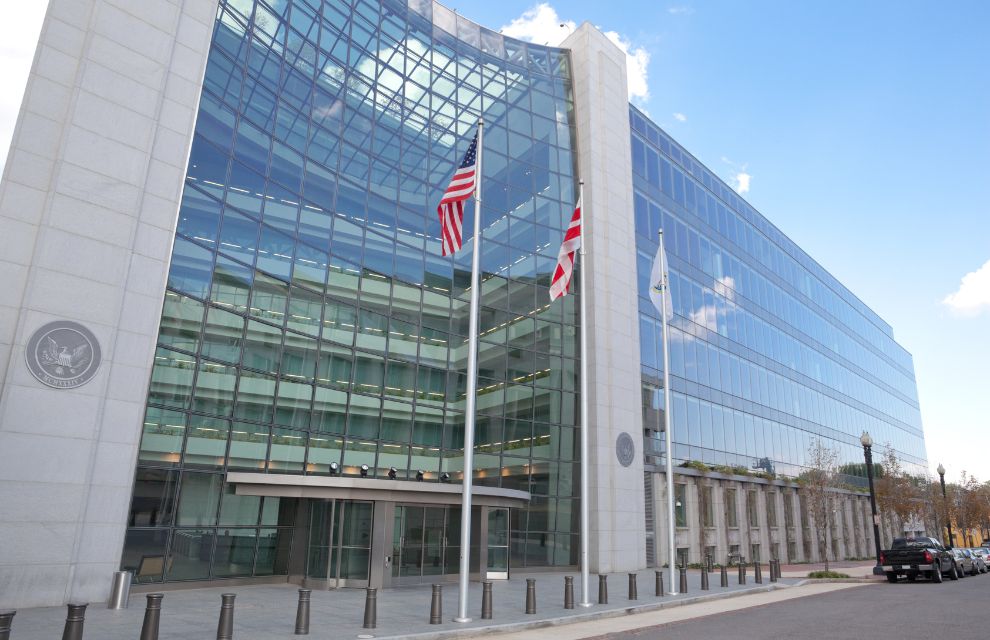SEC issues final rules relating to CCP governance and service outsourcing
17 November 2023 US
 Image: AdobeStock/qingwa
Image: AdobeStock/qingwa
The Securities and Exchange Commission (SEC) has adopted final rules relating to clearing house governance and use of external third-party providers by central counterparties (CCPs).
The SEC first implemented rules defining governance standards for registered clearing houses in 2012 and it added further enhancements to those governance principles in 2016 for clearing houses that are considered to be systemically-important market utilities.
Its final rules, adopted yesterday, look to reinforce governance standards relating to board independence on clearing boards and to reduce potential conflicts of interest relating to board members and senior management.
These amendments also tighten rules relating to CCP’s use of external service providers, ensuring that use of outsourced services does not accentuate risk for the clearing house, its members and their customers. In doing so, the rules require clearing houses to establish a clear set of policies relating to their use of third-party service providers.
For board members, the new rule set specifies that a majority of nominating committee’s members must be independent and it defines standards to ensure that members of the risk management committee have sufficient expertise.
The CCP must have policies in place to identify and document potential conflicts of interests involving directors or senior managers, along with procedures to mitigate or eliminate those conflicts of interest.
In the adopting release, the SEC specifies that clear and transparent governance arrangements are integral to ensuring that a clearing agency is resilient.
“The challenge is in crafting governance standards that are appropriately designed to achieve the desired outcome without imposing unnecessary costs,” explains Commissioner Mark T Uyeda.
Among the changes, Rules 17Ad-25(d)(1), which would previously have required a CCP risk management committee to “reconstitute its membership on a regular basis”, now demands that it does so annually. The SEC was concerned that previous rules could have forced CCPs to remove members of the risk management committee that have deep industry expertise.
The changes will give greater flexibility to clearing houses to retain valuable risk committee members from year to year, while still reconstituting its risk committee when appropriate.
With regard to CCP outsourcing of services, the new rules have provided a tighter definition of how a “service provider of core services” should be identified. The service provider will only fall into scope of Rule 17Ad-25(a) if the service provider directly supports delivery of settlement or clearing functions on an ongoing basis, or other services crucial to the CCP’s activities.
The SEC says that this change aims to eliminate “potentially absurd results” such as a public utility company falling within the scope of these outsourcing rules.
In informing and guiding CCP risk management strategy and operations, the final rules specify that the CCP must have effective consultation mechanisms in place to consider the views of relevant CCP stakeholders and to act on this feedback.
The SEC first implemented rules defining governance standards for registered clearing houses in 2012 and it added further enhancements to those governance principles in 2016 for clearing houses that are considered to be systemically-important market utilities.
Its final rules, adopted yesterday, look to reinforce governance standards relating to board independence on clearing boards and to reduce potential conflicts of interest relating to board members and senior management.
These amendments also tighten rules relating to CCP’s use of external service providers, ensuring that use of outsourced services does not accentuate risk for the clearing house, its members and their customers. In doing so, the rules require clearing houses to establish a clear set of policies relating to their use of third-party service providers.
For board members, the new rule set specifies that a majority of nominating committee’s members must be independent and it defines standards to ensure that members of the risk management committee have sufficient expertise.
The CCP must have policies in place to identify and document potential conflicts of interests involving directors or senior managers, along with procedures to mitigate or eliminate those conflicts of interest.
In the adopting release, the SEC specifies that clear and transparent governance arrangements are integral to ensuring that a clearing agency is resilient.
“The challenge is in crafting governance standards that are appropriately designed to achieve the desired outcome without imposing unnecessary costs,” explains Commissioner Mark T Uyeda.
Among the changes, Rules 17Ad-25(d)(1), which would previously have required a CCP risk management committee to “reconstitute its membership on a regular basis”, now demands that it does so annually. The SEC was concerned that previous rules could have forced CCPs to remove members of the risk management committee that have deep industry expertise.
The changes will give greater flexibility to clearing houses to retain valuable risk committee members from year to year, while still reconstituting its risk committee when appropriate.
With regard to CCP outsourcing of services, the new rules have provided a tighter definition of how a “service provider of core services” should be identified. The service provider will only fall into scope of Rule 17Ad-25(a) if the service provider directly supports delivery of settlement or clearing functions on an ongoing basis, or other services crucial to the CCP’s activities.
The SEC says that this change aims to eliminate “potentially absurd results” such as a public utility company falling within the scope of these outsourcing rules.
In informing and guiding CCP risk management strategy and operations, the final rules specify that the CCP must have effective consultation mechanisms in place to consider the views of relevant CCP stakeholders and to act on this feedback.
NO FEE, NO RISK
100% ON RETURNS If you invest in only one securities finance news source this year, make sure it is your free subscription to Securities Finance Times
100% ON RETURNS If you invest in only one securities finance news source this year, make sure it is your free subscription to Securities Finance Times



